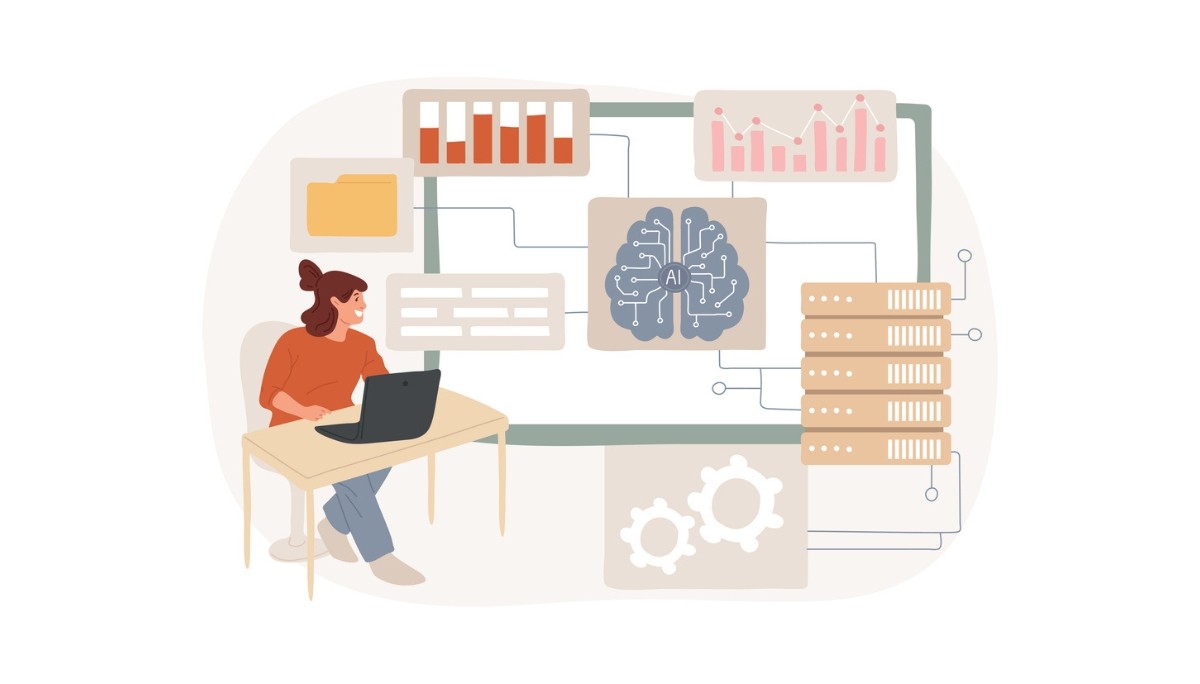DevOps Engineer Careers, Training, and the Rise of DevOps as a Service
By
Liz Fujiwara
•
Sep 17, 2025
A DevOps Engineer is a professional who bridges the gap between software development (Dev) and IT operations (Ops), fostering improved collaboration, efficiency, and faster delivery of high-quality software. By integrating development and operations processes, DevOps Engineers help organizations automate and streamline the entire software development lifecycle, from coding and testing to deployment, monitoring, and maintenance. These professionals play a critical role in ensuring that applications are reliable, scalable, and continuously improved. This article explores the core responsibilities, essential technical and soft skills, and promising career prospects for DevOps Engineers in today’s evolving technology landscape.
Key Takeaways
DevOps Engineers serve as a vital link between development and operations, emphasizing collaboration to enhance software development efficiency.
Essential skills for DevOps Engineers include proficiency in CI/CD pipelines, cloud platforms, and infrastructure automation, along with strong communication and leadership abilities.
The job market for DevOps Engineers is expanding rapidly, with employment projected to grow by 17% between 2023 and 2033, and average U.S. salaries reaching around $139,000 per year.
Understanding the Role of a DevOps Engineer

A DevOps Engineer acts as a crucial bridge between development and operations, emphasizing collaboration to enhance efficiency. This role requires not only technical expertise but also strong interpersonal skills to facilitate seamless communication among various teams, including the engineering team. In the fast-paced world of software development, collaboration between development and operations teams is vital for the smooth functioning of the software development lifecycle. A DevOps manager plays a key role in this process.
The job description of a DevOps Engineer includes a wide range of responsibilities, such as release engineering, infrastructure provisioning, and system administration. One of the most critical roles they play is that of a DevOps advocate, guiding the organization through cultural shifts needed to fully embrace DevOps practices.
Promoting a DevOps culture ensures that both development and IT operations teams work toward common goals, ultimately fostering success.
Core Responsibilities of DevOps Engineers
DevOps Engineers build and maintain pipelines for deployment and testing, a cornerstone of DevOps practices. These pipelines ensure that software development processes are streamlined, reducing the time from code development to deployment. Their responsibilities include:
Building and maintaining automation pipelines for deployment and testing
Streamlining software development processes to reduce deployment time
Automating security controls
Managing configuration tasks
Ensuring security and compliance throughout the software development lifecycle
One of the key responsibilities of DevOps Engineers is to automate and streamline the build, test, and release processes through continuous delivery. This involves configuring deployment pipelines that include both testing and production environments to ensure smooth transitions and deployments. They are also responsible for instrumenting applications for performance monitoring and logging, which helps maintain the health and performance of software systems. A release manager plays a crucial role in this process.
In addition to these technical tasks, DevOps Engineers:
Perform root cause analysis to prevent repeat incidents and improve processes
Optimize processes and workflows to enhance productivity and minimize inefficiencies
Conduct regular audits to ensure that quality and security standards are upheld
By fulfilling these responsibilities, DevOps Engineers play a vital role in the organization’s DevOps success.
Essential Technical Skills for DevOps Engineers
To be a successful DevOps Engineer, one must possess a diverse set of technical skills, including:
Strong capabilities in infrastructure, automation, and software deployment
Effective communication and collaboration skills to bridge the gap between development and operations teams
Proficiency in essential DevOps tools
Understanding of advanced software development and agile practices
Exploring specific areas such as cloud platforms, CI/CD pipelines, and infrastructure automation is vital for effectively implementing DevOps practices.
Proficiency in Cloud Platforms
A solid understanding of cloud platforms is indispensable for DevOps Engineers. Basic programming skills, along with Linux and Unix fundamentals, form the foundation of this knowledge. DevOps Engineers must be adept at working with different cloud infrastructure models, such as IaaS, PaaS, and SaaS, and be familiar with relevant DevOps tools. Platforms like Google Cloud Platform and services like Amazon ECS enable the deployment of secure and scalable container systems, which are critical in a DevOps environment, highlighting the importance of platform engineering and internal developer platforms.
Proficiency in cloud platforms not only ensures optimal performance but also provides a competitive edge in managing servers and infrastructure automation. Leveraging cloud computing streamlines the software development lifecycle and enhances collaboration among DevOps, development, and operations teams. Mastery of these platforms is crucial for implementing DevOps processes effectively and achieving DevOps success.
Expertise in CI/CD Pipelines
Continuous Integration and Continuous Delivery/Deployment, known as CI/CD, are fundamental practices in DevOps and play a crucial role in the software development process. CI/CD automates and monitors the application lifecycle, facilitating frequent delivery and improving software quality. By streamlining and accelerating the software development lifecycle, CI/CD pipelines ensure that new features and updates are delivered quickly and reliably.
DevOps Engineers must have a strong understanding of CI/CD pipelines, including infrastructure as code, artifact maintenance, and version management. CI/CD tools automate the building, testing, and deployment of software, which is vital for maintaining a seamless development process.
Mastering CI/CD methodologies is also essential for DevSecOps Engineers, particularly within cloud infrastructure platforms. Excelling in CI/CD enables DevOps Engineers to significantly contribute to the organization’s overall DevOps culture.
Infrastructure Automation Skills
Infrastructure automation is a critical aspect of the DevOps environment, enabling efficient management and deployment of applications. DevOps Engineers must be proficient in writing automation scripts and using orchestration tools to automate repetitive tasks and streamline the deployment process. This ensures consistent and reliable application deployment across different environments.
Automating infrastructure tasks not only enhances productivity but also reduces the likelihood of human error, ensuring that security patches and updates are applied promptly. This level of automation is vital for maintaining the integrity and performance of the underlying infrastructure.
DevOps Engineers with strong infrastructure automation skills can significantly contribute to the efficiency and success of DevOps processes within their organizations, particularly in the role of a site reliability engineer.
Important Soft Skills for DevOps Engineers
While technical skills are crucial, soft skills play an equally important role in the success of DevOps Engineers. Effective DevOps implementation often requires transforming organizational structures that have traditionally operated in silos. Collaboration is strengthened through regular communication and the sharing of ideas among team members. DevOps Engineers aim to improve cooperation between development and IT operations teams that have historically worked separately.
Soft skills vital for interacting effectively within diverse IT teams in a DevOps environment include:
Communication, encompassing both expressing ideas and attentively listening to others
Adaptability
Leadership
Critical thinking, which enables DevOps Engineers to make informed decisions quickly in high-pressure situations and enhances their problem-solving abilities
Leadership qualities, even in non-official roles, allow DevOps Engineers to motivate team members and drive initiatives. Developing these soft skills fosters a collaborative and productive DevOps culture, contributing to overall success as a team lead.
Common DevOps Tools and Technologies

DevOps tools cover the entire software lifecycle, including infrastructure setup, building, monitoring, and operations. Key tools and concepts for DevOps Engineers are often organized into DevOps toolchains:
Containerization
CI/CD
Monitoring
An overview of essential DevOps tools and technologies includes containerization and orchestration tools, monitoring and logging solutions, and the appropriate tools for configuration management.
Containerization and Orchestration Tools
Container technologies like Kubernetes and Docker are essential for modern DevOps practices. Docker enables containerization, providing several key benefits:
Ensures application consistency across different environments
Reduces configuration drift
Facilitates easier movement of applications between environments
Makes deployment more efficient
Kubernetes automates container operations on Linux, managing scaling, load balancing, and failover, which are critical for maintaining application stability and performance. Mastering containerization and orchestration tools ensures smooth and efficient software delivery, contributing to the overall success of DevOps practices, especially when using platforms like Google Kubernetes Engine.
Monitoring and Logging Tools
Monitoring and logging are essential components of the DevOps toolkit. Prometheus is a robust monitoring tool that collects metrics and performance data from various services. It provides real-time insights into application health and performance, allowing DevOps Engineers to detect and resolve issues promptly.
Grafana complements Prometheus by offering a user-friendly interface for creating dashboards and visualizations from multiple data sources. Together, these tools enable effective performance monitoring and logging, ensuring that applications operate smoothly and efficiently.
Leveraging monitoring and logging tools helps maintain high standards of performance and reliability, ensuring software systems consistently deliver optimal results.
Configuration Management Tools
Configuration management is a critical aspect of system administration in a DevOps environment. Many organizations use configuration management tools to automate system administration tasks and maintain consistency across their infrastructure. Key tools that DevOps Engineers should be familiar with include Chef, Puppet, and Ansible.
Infrastructure as Code (IaC) involves managing cloud infrastructure resources using DevOps best practices. This approach ensures that infrastructure configurations are version-controlled and repeatable, reducing the risk of errors and improving deployment efficiency. Mastering these configuration management tools supports the smooth and reliable operation of an organization’s infrastructure.
Training and Certification Pathways for Aspiring DevOps Engineers

For aspiring DevOps Engineers, obtaining relevant AI certifications can significantly enhance qualifications and career prospects. Microsoft offers a certification for DevOps Engineers that covers both development and infrastructure management within Azure. The Microsoft Certified: DevOps Engineer Expert certification emphasizes continuous integration, continuous delivery, and monitoring of DevOps solutions.
To earn this certification, candidates must first obtain a foundational certification as either an Azure Administrator or Azure Developer. Structured learning paths are available to prepare for the certification exam, including modules on CI/CD practices.
Hands-on experience with Azure DevOps and GitHub is essential for candidates. Both self-paced and instructor-led training options are available to support exam preparation. Pursuing these certifications demonstrates expertise and commitment to the DevOps field.
The Rise of DevOps as a Service (DaaS)

The rise of DevOps as a Service (DaaS) has transformed how companies manage their DevOps lifecycle. DaaS typically involves third-party experts handling the entire DevOps process, allowing internal teams to focus on core business activities. This approach offers several benefits, including built-in security measures and compliance checks as part of the service.
Leveraging DaaS ensures that DevOps practices are managed by experienced professionals, leading to more efficient and reliable software delivery. Adoption of DaaS also allows companies to scale their DevOps operations quickly and effectively, contributing to overall success.
Job Market and Growth Prospects

The job market for DevOps Engineers is thriving, with the following key points:
Job postings reach approximately 580,720 in the United States.
Employment is projected to grow by 15% between 2024 and 2034, indicating strong demand.
Median salary in 2023 was reported at $133,080.
Highest annual earnings reach about $208,624.
As the demand for DevOps Engineers continues to rise, individuals pursuing this career path can expect robust job opportunities and competitive salaries. Staying updated with the latest DevOps practices and continuously enhancing skills ensures rewarding and fulfilling careers in this rapidly evolving field.
Practical Tips for Succeeding in a DevOps Career
Succeeding in a DevOps career requires a combination of technical expertise and strategic preparation. To enhance your chances of success in interviews:
Understand DevOps fundamentals and common tools.
Dress appropriately, balancing professionalism with comfort to present yourself confidently.
Use the STAR method (Situation, Task, Action, Result) to structure your responses during behavioral interview questions, ensuring clear communication of your experiences and achievements.
In addition to interview preparation, showcasing your skills through personal projects or lab simulations is crucial. This hands-on experience demonstrates both your practical abilities and your commitment to continuous learning and improvement.
Staying current with the latest trends and tools in DevOps helps maintain your competitive edge in the job market. Emphasizing both your technical skills and soft skills, such as communication and collaboration, will position you as a well-rounded candidate ready to contribute to any DevOps team.
Summary
In summary, a career as a DevOps Engineer offers numerous opportunities for growth and innovation. By understanding the core responsibilities, essential technical and soft skills, and the tools and technologies integral to DevOps practices, aspiring engineers can build a strong foundation for success. Earning certifications and engaging in continuous learning further enhance career prospects, while the rise of DevOps as a Service provides new avenues for professional development. Whether you are just starting or looking to advance your career, embracing DevOps principles can lead to a fulfilling and dynamic professional journey.




